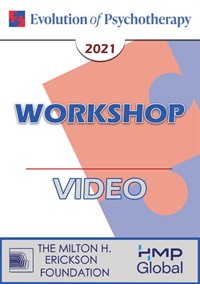EP21 Workshop 29 - Reconstructing the Continuing Bond: Transforming Meaning and Mourning in Bereavement - Robert Neimeyer, PhD
- Average Rating:
- Not yet rated
- Topic Areas:
- Workshops
- Categories:
- Evolution of Psychotherapy | Evolution of Psychotherapy 2021
- Faculty:
- Robert Neimeyer
- Course Levels:
- Master Degree or Higher in Health-Related Field
- Duration:
- 2 hours
- Format:
- Audio and Video
- Original Program Date:
- Dec 05, 2021
- License:
- Never Expires.
Description
When grief becomes painfully preoccupying and protracted, the problem often arises at the intersection of the death and the relationship it interrupted. Drawing on attachment-informed and Two-Track models of bereavement, we will begin by considering grieving as a process of reconstructing rather than relinquishing our bonds with those who have died, and the complicating circumstances that can interfere with this natural process. We then turn to a close analysis of a single session of therapy that releases an adult daughter from an anguishing grief that has persisted unchanged for many years, and that has insinuated itself into her life with intimate others. We begin this work by attending closely to "quality terms" in the client's narrative that poignantly convey the character of her connection with her mother, that symbolically signal the devastation caused by her death, and that function as harbingers of a more hopeful reconstructed relationship. Probing gently for possible openings into a foreclosed system of meaning and mourning, we observe and discuss the role of body imagery and chair work in fostering therapeutic transformation. We conclude with a follow-up report on the therapy that documents its impact, and bridge into experiential practice with these same techniques, with the goal of refining both our sense of personal presence and clinical competence in addressing complications in bereavement.
Learning Objectives
- Conceptualize complicated or prolonged grief as a disturbance in attachment to the deceased that calls for relational reconstruction.
- Describe the Two-Track Model of bereavement and the role of accessing the back story of relationship in reorganizing the continuing bond.
- Track metaphors and quality terms in the client's narrative that provide portals to a deeper understanding of the client's impasse, and how it might be unlocked.
- Practice analogical listening to delve into embodied meanings that maintain mourning, and foster their transformation.
Credits


